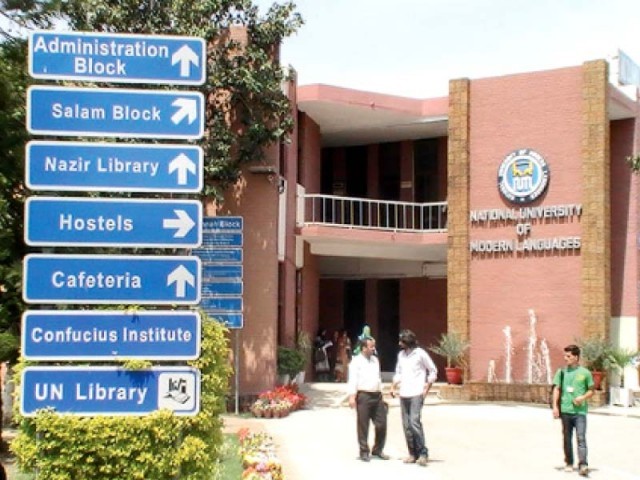
The government has launched a massive drive to sensitise university students about the benefits of the prime minister’s Kamyab Jawan Programme (KJP). The project aims to ensure the socio-economic empowerment of youth through skill development, financial inclusion, and civic and political engagement.
Special Assistant to the Prime Minister (SAPM) on Youth Affairs Muhammad Usman Dar visited universities in the federal capital the other day to highlight KJP’s salient features and apprise youth about its different components.
He visited the National University of Modern Languages (NUML), National University of Technology, Bahria University and other campuses and addressed KJP certificate and loan distribution ceremonies there.
Addressing a cheque and certificate-distribution ceremony at NUML, he said his objective in visiting universities was to spread the prime minister’s message who wants to change young people’s mindset regarding scoring jobs. “Our youth prefer jobs in the public sector. This has to change as the future is in start-ups,” he added.
Dar said that youth before completing their education should premeditate about starting their own business so that they could create jobs, adding they should not hesitate in launching their own start-ups as the government would support them in the entire process.
He mentioned that at least 17,000 young entrepreneurs were declared eligible for the provision of soft loans under the Youth Entrepreneurship Scheme (YES) of KJP.
“Around 10,000 businesses have already been launched and nine billion rupees disbursed,” he said, adding, “this is only the beginning," he said. The government, he maintained, had set a target of helping 300,000 young people open their own business across the country.
To achieve this target, the government had decided to engage micro-financing institutions and organisations and would add another tier in the existing programme to offer loans of up to Rs2 million without collateral.
Elucidating another major component of KJP, he said skills in conventional and high-tech trades were also being provided to around 170,000 youth to enable them to avail jobs in local and international markets.
The SAPM said around 37,000 young people had completed six-month courses in traditional and high-tech trades in the first phase, while training of another batch of 55,000 youth was underway.
Published in The Express Tribune, May 31st, 2021.

1725354252-0/Untitled-design-(5)1725354252-0-405x300.webp)
1732099866-0/adele-(3)1732099866-0-165x106.webp)





1732011525-0/Express-Tribune-(8)1732011525-0-270x192.webp)









COMMENTS
Comments are moderated and generally will be posted if they are on-topic and not abusive.
For more information, please see our Comments FAQ